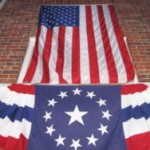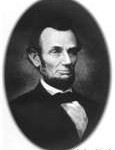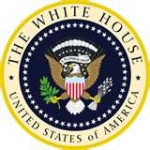Presidents’ Day
Washington’s Birthday is a United States federal holiday celebrated on the third Monday of February. It is also commonly known as Presidents Day (sometimes spelled Presidents’ Day or President’s Day). As Washington’s Birthday or Presidents Day, it is also the official name of a concurrent state holiday celebrated on the same day in a number of states.
Titled Washington’s Birthday, a federal holiday honoring George Washington was originally implemented by an Act of Congress in 1880 for government offices in the District of Columbia (20 Stat. 277) and expanded in 1885 to include all federal offices (23 Stat. 516). As the first federal holiday to honor an American citizen, the holiday was celebrated on Washington’s actual birthday, February 22. On January 1, 1971, the federal holiday was shifted to the third Monday in February by the Uniform Monday Holiday Act. This date places it between February 15 and 21, which makes the name “Washington’s Birthday” a misnomer, since it never lands on Washington’s actual birthday, February 22.
The first attempt to create a Presidents’ Day occurred in 1951 when the “President’s Day National Committee” was formed by Harold Stonebridge Fischer of Compton, California, who became its National Executive Director for the next two decades. The purpose was not to honor any particular President, but to honor the office of the Presidency. It was first thought that March 4, the original Inauguration Day, should be deemed Presidents’ Day. However, the bill recognizing the March 4th date was stalled in the Senate Judiciary Committee (which had authority over national holidays). That committee felt that, because of its proximity to Lincoln’s and Washington Birthdays, three holidays so close together would be unduly burdensome. During this time, however, the Governors of a majority of the individual states issued proclamations declaring March 4 to be Presidents’ Day in their respective jurisdictions.
An early draft of the Uniform Holidays Bill of 1968 would have renamed the holiday to Presidents’ Day to honor the birthdays of both Washington and Lincoln, but this proposal failed in committee and the bill as voted on and signed into law on 28 June 1968, kept the name Washington’s Birthday.
By the mid-1980s, with a push from advertisers, the term “Presidents’ Day” began its public appearance. Although Lincoln’s birthday, February 12, was never a federal holiday, approximately a dozen state governments have officially renamed their Washington’s Birthday observances as “Presidents’ Day”, “Washington and Lincoln Day”, or other such designations. However, “Presidents’ Day” is not always an all-inclusive term.
- In Massachusetts, the state officially celebrates “Washington’s Birthday” on the same day as the Federal holiday state law also directs the governor to issue an annual “Presidents Day” proclamation on May 29 honoring the presidents with Massachusetts roots: John Adams, John Quincy Adams, Calvin Coolidge, and John F. Kennedy.
- Alabama uniquely observes the day as “Washington and Jefferson Day”, even though Thomas Jefferson’s birthday is in April.
- In Connecticut, Missouri and Illinois, while Washington’s Birthday is a federal holiday, Abraham Lincoln’s birthday is still a state holiday, falling on February 12 regardless of the day of the week.
- In Washington’s home state of Virginia, the holiday is legally known as “George Washington Day.”
The federal holiday Washington’s Birthday honors the accomplishments of the man known as “The Father of his Country”. Celebrated for his leadership in the founding of the nation, he was the Electoral College’s unanimous choice to become the first President; he was seen as a unifying force for the new republic and set an example for future holders of the office.
The holiday is also a tribute to the general who created the first military badge of merit for the common soldier. Revived on Washington’s 200th birthday in 1932, the Purple Heart medal is awarded to soldiers who are injured in battle. As with Memorial Day and Veterans Day, Washington’s Birthday offers another opportunity to honor the country’s veterans.
In 2007 the country celebrated both Washington’s 275th birthday and the 75th anniversary of the rebirth of the Purple Heart medal.
Since 1862 there has been a tradition in the United States Senate that George Washington’s Farewell Address be read on his birthday. Citizens had asked that this be done in light of the approaching Civil War. The annual tradition continues with the reading of the address on or near Washington’s Birthday.





